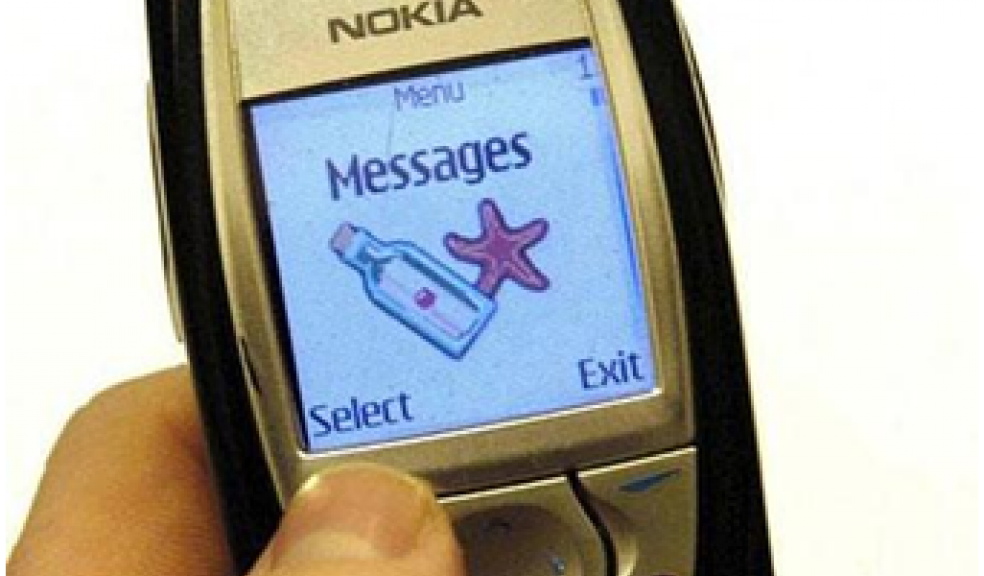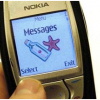
Furniture Village marks its 24th birthday by celebrating 1989 – the year when texting began
In August 2013, Furniture Village turns 24 and, in order to celebrate, the UK’s largest independent retailer of its type is commemorating another significant event from 1989 – the invention of the text message. To mark its birthday, Furniture Village is launching a search for each county’s earliest recorded text sent by a member of the Great British public.
The Furniture Village branch in Exeter is calling on the public to search attics, drawers and shoe boxes to dig-out old mobile phones, power them up once more, and find the region’s earliest recorded text. If a person thinks that theirs is the earliest text message, they should use their thoroughly modern Smartphone to photograph it and then follow the instructions within the dedicated competition page at www.furniturevillage.co.uk/magazine Note – only text messages sent before 2000 are eligible for entry. Competition closes August 31st 2013.
Furniture Village will be offering £50 off purchases of £500 or more in Exeter for the earliest verifiable text message from the region.
‘We are excited to be launching the search to find Britain’s earliest text message, I can remember sending my first in 2000, only wish I could find it now. We are hoping the initiative will get everybody searching for their old Nokia.’ – Chris Edwards at Furniture Village.
The History of the Text Message
Raina Fortini is believed to have been the first person to have sent a text message, 24 years ago in 1989. This is a milestone in telecommunications history and coincides with the year Furniture Village was founded. Inevitably for technology that has become so ubiquitous, many people claim to have sent the first text message, however, Edward Lantz, a former NASA employee, clearly stated that it was sent to him by Raina Fortini in 1989 from New York to Florida. She did so by using a pager, using numbers that read as letters when viewed upside down.
The world’s first commercial text message was sent over a GSM phone network which said ‘Merry Christmas’ from Neil Papworth to the head of Vodafone on December 3rd 1992 from a PC within the Vodafone site in Berkshire, UK. Text messages became available to all when they could be sent across mobile networks for the first time, in 1999, and people began to use the medium as a preferred choice of communication, with just over 1 billon text messages sent in the UK in that year. Since then, text messaging has become an integral part of our day-to-day lives and with it has brought along its own language, and text speak has even entered the Oxford English Dictionary.
Text messaging is the most widely used mobile data service on the planet, with 72% of all mobile phone users worldwide or 1.9 billion out of 2.7 billion phone subscribers at end of 2006 being active users of the Short Message Service (SMS) (according to research by Mobile Data Association). It is still a growing market and according to Ofcom 150 billion texts were sent in 2011 in the UK and 7.4 trillion globally – almost triple the figure in 2006. Smart insights state that - of the world’s 4 billion mobile phones in use, 1.08 billion are Smartphones and a massive 3.05 billion are SMS enabled (2013).
Texting has even created a sporting event – the Guinness Book of World Records records the fastest text message as written by Sonja Kristiansen of Norway who took 37.28 seconds to thumb: "The razor-toothed piranhas of the genera Serrasalmus and Pygocentrus are the most ferocious freshwater fish in the world. In reality, they seldom attack a human.”
Text messaging was reported to have addictive tendencies by the Global Messaging Survey by Nokia in 2001 and was confirmed to be addictive by the study at the Catholic University of Leuven in Belgium in 2004. Since then the study at the Queensland University of Australia has found that text messaging is the most addictive digital service on mobile or internet, and is equivalent in addictiveness to cigarette smoking. The text reception habit introduces a need to remain connected, called ‘reachability’.
Since the opening in 1989 of its first store in Abingdon (Oxfordshire), Furniture Village has remained true to its founding principle of offering high quality furniture and accessories that exceed the practical requirements of UK customers seeking durable, attractive and great value furniture for their homes. Each collection is characterised by the Furniture Village ethos of providing classic and timeless design, with fresh and contemporary seasonal accents.
Furniture Village
Furniture Village is today the UK’s largest privately-owned business of its type, employing 727 staff, and offering over 500 different furniture ranges from 40 stores across the country, and online at www.furniturevillage.com Over a typical week, Furniture Village processes over 4,000 transactions within its UK stores.
Furniture Village, Sowton Retail Park, Moor Lane, Exeter, EX2 7JA, Customer Number – 0800 7833 833

















